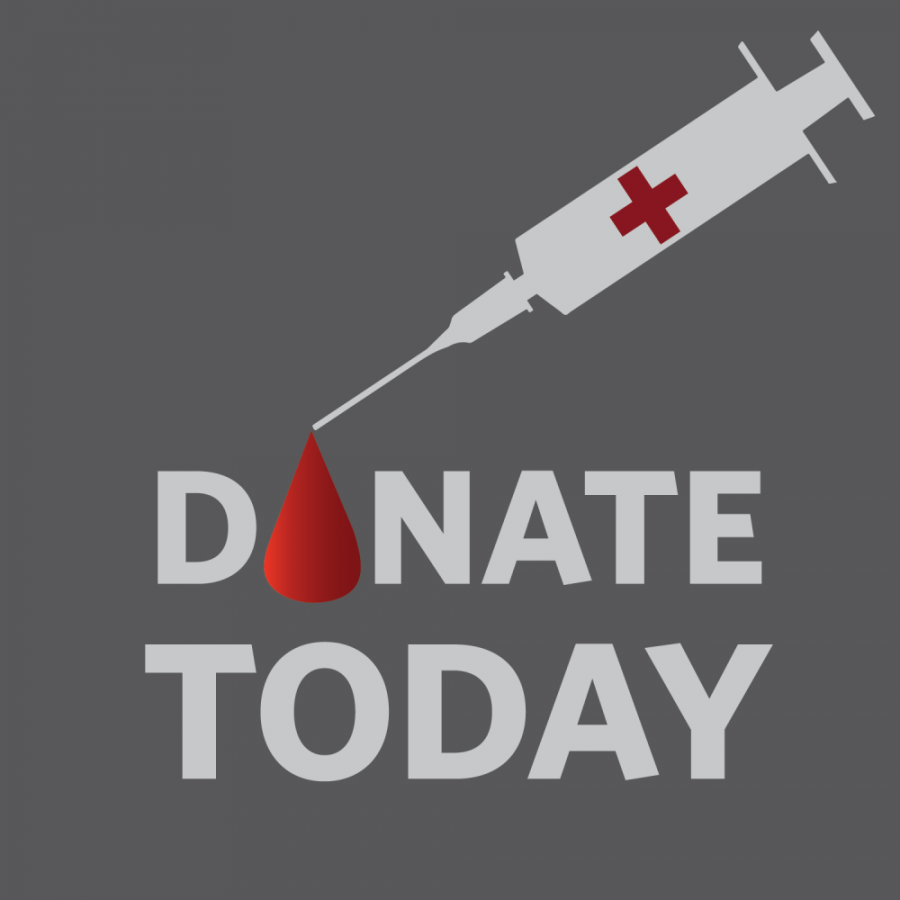One blood donation goes a long way
October 8, 2017
I helped save a life in only 30 minutes. Today was my first time donating blood and it was easier than I thought. I went in thinking the donation process would be stressful, but I couldn’t have felt more comfortable with the staff that was present because of their professionalism and diligence.
Just as if I were waiting for a test score, I was nervous about donating my blood. Would the needle really hurt? Would I pass out and be embarrassed? These were the thoughts that ran through my head.
Nervous with anticipation, I knew donating my blood could save another person’s life. The shooting in Las Vegas is currently the worst mass shooting to happen in the United States. Hospitals rushed to save victims, but were faced with a shortage of blood.
Thankfully, people rushed to donate. Lines formed outside of blood drives to help hospitals accommodate for the rush of victims.
Donating blood is easier than you may think and requires minimal paperwork. You bring a form of identification and answer questions about your health history.
Get The Daily Illini in your inbox!
The phlebotomists do a basic check of your blood pressure, temperature and other necessary tests to ensure you are eligible to donate blood. After that, you get on the table, lie back and the professionals do the rest.
This process is a fairly easy one that helps so many. For example, thousands of people in the U.S. need blood transfusions for sickle cell disease. The American Cancer Society estimates there will be 1,688,780 new cancer cases diagnosed in 2017.
Those with cancer need donated blood for their chemotherapy treatments. According to the American Red Cross, “every two seconds someone in the U.S. needs blood.” The tragic massacre in Las Vegas is a perfect example of the desperate need for blood during unexpected occurrences.
In Champaign-Urbana, the University consistently has blood drives throughout the year. On Oct. 2, the Psi Upsilon fraternity and Fighting Illini Army ROTC Battalion came together to create a blood drive. Psi Upsilon beat their record of donors from prior years with 54 students donating their blood to the American Red Cross.
Sean Zwicky, senior in LAS, created this event and partnered with the American Red Cross. Zwicky’s greatest challenge when creating a blood drive was recruiting donors.
“A lot of people immediately disregard the idea of giving blood just because they’re afraid of needles, but there is such a desperate need for blood donations with everything that’s going in in the country,” he said. “It’s a really simple process to donate and the Red Cross staff is great about making sure you’re comfortable.”
People may not want to donate blood out of fear of needles, as Zwicky said, or diffusing the responsibility to other people.
Despite hospitals’ constant need for blood donations, there is not a lot of awareness of the issue. When I hear of someone donating, it is usually in reference to someone who passed away or maybe an organ donation to a family member. Unless I was in an extreme situation like those, I never thought of donating.
Donating may not have occurred to people before, or they may be scared of health risks involved. Mayo Clinic described how the staff always uses new and sterile equipment when people donate blood.
According to Mayo Clinic’s website, “If you’re a healthy adult, you can usually donate a pint of blood without endangering your health. Within 24 hours of a blood donation, your body replaces the lost fluids. And after several weeks, your body replaces the lost red blood cells.”
In situations like mass shootings, the need for blood becomes even more dire. It is better for a hospital to be overprepared than underprepared. If people regularly donated blood, hospitals would always have blood on hand and not need to have these calls to action in times of emergencies.
Those who wish to donate blood should call 1-800-RED CROSS (1-800-733-2767).
Delayne is junior in LAS.







